第73章 Section 10(1)
It is doubtful if we shall ever see again a phase of human existence in which 'politics,' that is to say a partisan interference with the ruling sanities of the world, will be the dominant interest among serious men. We seem to have entered upon an entirely new phase in history in which contention as distinguished from rivalry, has almost abruptly ceased to be the usual occupation, and has become at most a subdued and hidden and discredited thing. Contentious professions cease to be an honourable employment for men. The peace between nations is also a peace between individuals. We live in a world that comes of age. Man the warrior, man the lawyer, and all the bickering aspects of life, pass into obscurity; the grave dreamers, man the curious learner, and man the creative artist, come forward to replace these barbaric aspects of existence by a less ignoble adventure.
There is no natural life of man. He is, and always has been, a sheath of varied and even incompatible possibilities, a palimpsest of inherited dispositions. It was the habit of many writers in the early twentieth century to speak of competition and the narrow, private life of trade and saving and suspicious isolation as though such things were in some exceptional way proper to the human constitution, and as though openness of mind and a preference for achievement over possession were abnormal and rather unsubstantial qualities. How wrong that was the history of the decades immediately following the establishment of the world republic witnesses. Once the world was released from the hardening insecurities of a needless struggle for life that was collectively planless and individually absorbing, it became apparent that there was in the vast mass of people a long, smothered passion to make things. The world broke out into making, and at first mainly into aesthetic making. This phase of history, which has been not inaptly termed the 'Efflorescence,' is still, to a large extent, with us. The majority of our population consists of artists, and the bulk of activity in the world lies no longer with necessities but with their elaboration, decoration, and refinement. There has been an evident change in the quality of this making during recent years. It becomes more purposeful than it was, losing something of its first elegance and prettiness and gaining in intensity; but that is a change rather of hue than of nature. That comes with a deepening philosophy and a sounder education. For the first joyous exercises of fancy we perceive now the deliberation of a more constructive imagination. There is a natural order in these things, and art comes before science as the satisfaction of more elemental needs must come before art, and as play and pleasure come in a human life before the development of a settled purpose....